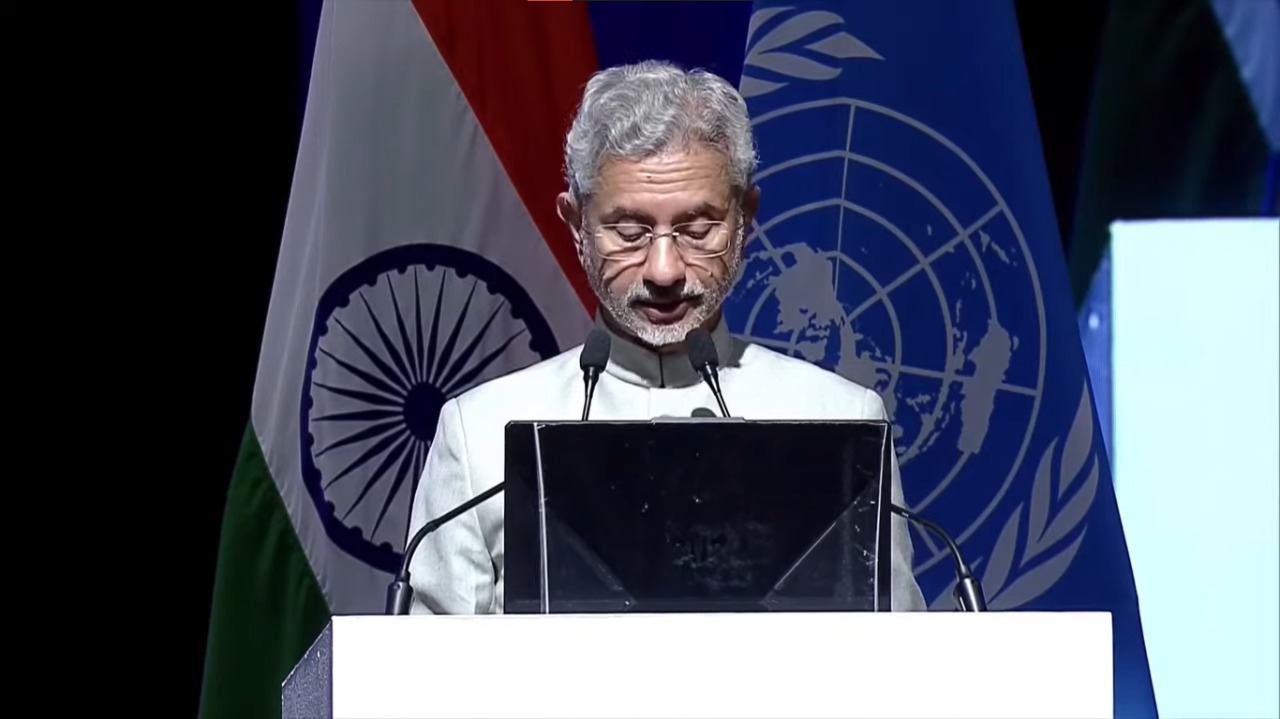* Rejects Oppn’s criticism on handling situation
NEW DELHI, Nov 25:
Prime Minister Narendra Modi has been “very firm” on China and he should be judged by the strong deployment of our forces on the Sino-India border, External Affairs Minister S Jaishankar said today, rejecting the Opposition’s criticism of the Prime Minister’s recent handshake with Chinese President Xi Jinping.
Jaishankar said while dealing with China, there is the reality that it is the second biggest economy in the world, India’s proximate neighbour but also one with whom it has had a difficult history, conflict and a very major boundary dispute.
Speaking at the Times Now summit, Jaishankar said the right way of dealing with China is to be firm when one has to be firm.
“If you have to move troops up to the border to deal with what they are trying to do, we should do that. On issues where they do not support or undermine our interests, to be frank about it, to be public about it where required. I don’t say public about it all the time but where diplomacy requires it is often useful to be public,” he said.
“…At the same time maintain the decorum and dignity of how leaders behave…This is exactly how this has happened,” he said.
Apparently responding to the criticism from certain quarters, especially the Opposition parties, of the handshake between Modi and Xi at the G20 summit in Bali earlier this month, Jaishankar said, “I guess there are people who can take positions, especially if they are free of responsibility, you can be pretty casual or thoughtless of what you say. It is a free country, people are entitled to say things. I think responsible, sensible people will see that there are ways in which a leader of India behaves.”
If one is going to be a president of the G20, of Shanghai Cooperation Organisation, those are responsibilities that one have taken up,” he said.
“I don’t think the Prime Minister has postured publicly on China. I think the Prime Minister has been very firm on China. The Prime Minister has been very clear and not just in his words, he has actually been very clear in his actions. Please understand the efforts that were made from 2020 onwards in maintaining such a large force on our borders. It is an enormous enterprise,” Jaishankar said.
“At the end of the day that is the answer. I would rather have a Prime Minister who does things than to have a Prime Minister who pontificates but does not actually do it out there. In the case of Prime Minister Modi, I think he should be judged by the fact that the Indian military today is deployed in strength on the borders with China to respond to the challenges of 2020,” he said.
Prime Minister Modi and Chinese President Xi shook hands earlier this month at a side event at the G20 Summit. A live video feed for the media from the welcome dinner hosted by Indonesian President Joko Widodo for G20 delegates showed the brief exchange between the two leaders.
Several Opposition leaders had criticised Modi and questioned the gesture in the wake of strained bilateral ties.
Talking about ties with China going forward, Jaishankar said he does not think the China relationship should be approached as a behavioral or a term-driven policy.
“I think we have structural long term challenges. My regret is that we have not taken that seriously. Today I am speaking about sending troops up there but remember 10 years ago you had people saying that our best defence is not to develop the border and that is the way of dealing with the border problem,” the External Affairs Minister said.
“Finally to developing your border infratructure…Creating greater capabilities within the country, all these are part of how India prepares for the world and it does not have to be against somebody,” he said.
Jaishankar also asserted that India has two huge handicaps in dealing with China including the defeat in the 1962 war, the consequence of which, he said, the country is still feeling today.
“When people write about a bridge that is coming up or a village that is coming up, please remember these were in areas that you lost in 1962. If that had not happened this would not have happened. The loss in 1962 is still a handicap that we carry. We may regret it, it does not reverse it,” Jaishankar said.
The second is that India started reforms 15 years later than China and its reforms were “half-hearted” and they were never deep enough as that of China.
“We have not built that economic strengths. In 1988 when Rajiv Gandhi went to China, our economies were of the same size, today their economy is four times that of ours. What does it tell us, it tells us even if we progressed we did not progress fast enough. I am not saying this as a blame game,” he said.
The Eastern Ladakh border standoff erupted on May 5, 2020, following a violent clash in the Pangong lake areas. Both sides gradually enhanced their deployment by rushing in tens of thousands of soldiers and heavy weaponry.
As a result of a series of military and diplomatic talks, the two sides completed the disengagement process last year on the north and south banks of the Pangong lake and in the Gogra area.
The disengagement in the Pangong Lake area took place in February last year while the withdrawal of troops and equipment in Patrolling Point 17 (A) in Gogra took place in August last year. (PTI)


